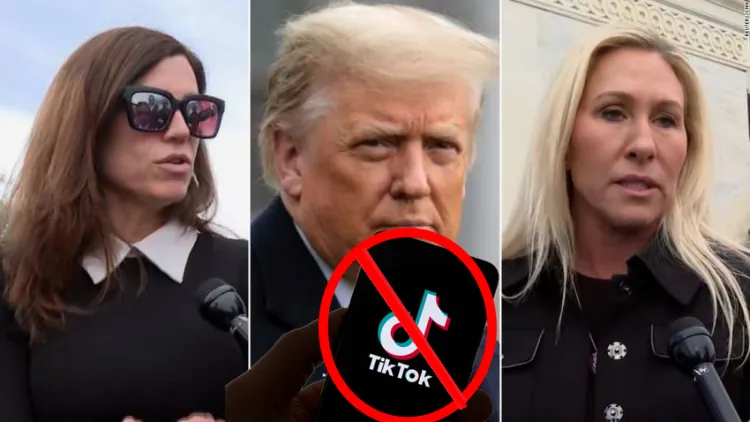US House Moves to Ban TikTok Amid Security Concerns & Bipartisan Support
The US House votes for a bill potentially banning TikTok, citing security threats, facing varied political stances.

US House Moves to Ban TikTok Amid Security Concerns & Bipartisan Support
Introduction
In a significant move against TikTok, the US House of Representatives voted overwhelmingly in favor of a bill that could see the popular social media platform banned nationwide. This decision underscores bipartisan concerns over national security threats posed by TikTok's Chinese parent company, ByteDance. With the bill now heading to the Senate, the future of TikTok in the United States hangs in the balance.
The Bipartisan Vote
On Wednesday, the House showcased a rare bipartisan agreement, voting 352 to 65 to advance a bill that could end TikTok's operations in the US unless it divests from ByteDance. This decision reflects growing apprehensions about the Chinese government's potential access to American user data through ByteDance, intensifying calls for stringent regulatory measures.
Political Dynamics and Opposition
The bill's journey has been influenced by varied political opinions. Former President Donald Trump, initially a proponent of banning TikTok, has recently shown ambivalence towards the matter. Meanwhile, the bill faces pushback from Democrats under pressure from young progressives, for whom TikTok is a preferred platform. Moreover, TikTok creators and the Chinese government have vehemently opposed the proposed legislation, with China branding it an "act of bullying."
Legislation and Next Steps
As the bill transitions to the Senate, its fate remains uncertain. TikTok has criticized the legislative process, fearing a total ban, and has urged its vast user base to lobby against the bill. Meanwhile, bipartisan leaders in the Senate have expressed their support, highlighting the national security risks associated with TikTok's operations.
Implications for TikTok and Its Users
Should the bill become law, TikTok would have a limited timeframe to sever ties with ByteDance or face a nationwide ban. This prospect has sparked a robust debate on the implications for freedom of expression, the digital economy, and the geopolitical tech landscape.
Conclusion
The House's decision to potentially ban TikTok underscores a bipartisan stance on safeguarding national security while navigating the complexities of global technology governance. As the debate moves to the Senate, the future of TikTok in the US remains uncertain, with significant implications for users, businesses, and the broader social media ecosystem.
FAQs
-
What does the House bill entail for TikTok? The bill requires TikTok to be divested from ByteDance or face a ban from US app stores.
-
Why is TikTok considered a security threat? Concerns revolve around the potential for the Chinese government to access US user data through ByteDance.
-
What are the political stances on the TikTok bill? The bill has seen bipartisan support but faces opposition from some Democrats and criticism from former President Trump.
-
What are the next steps for the legislation? The bill now heads to the Senate, where its future will be determined.
Further Reading and Resources
For more insights into the evolving landscape of social media regulation and its impact on global tech policy, visit Kiksee Magazine.
Explore our extensive coverage on the topic for a deeper understanding of the implications of the US House's decision to potentially ban TikTok and what it means for the future of digital communication and national security.
What's Your Reaction?





















